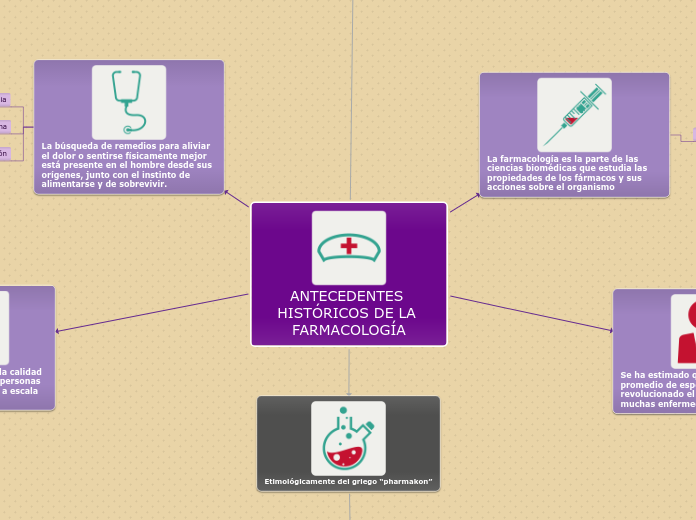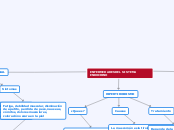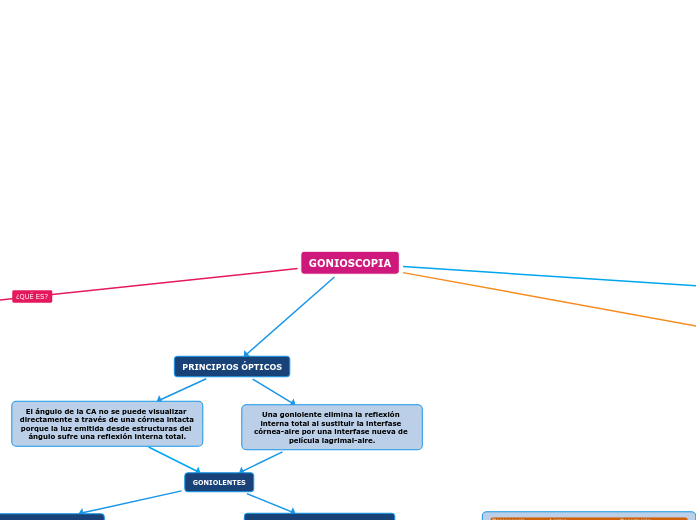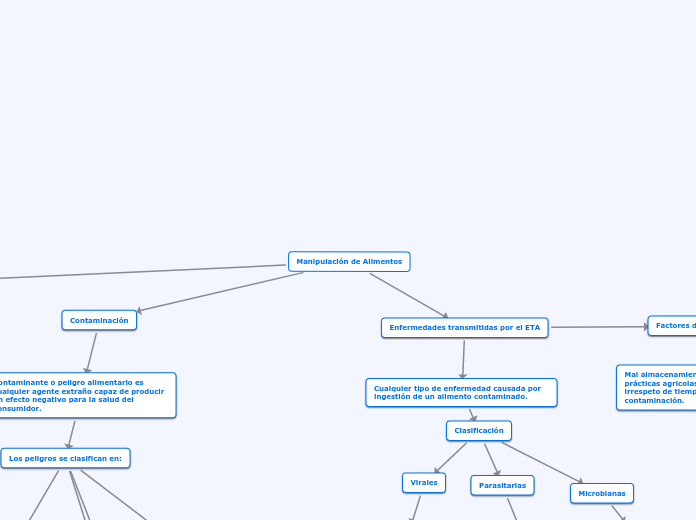ANTECEDENTES HISTÓRICOS DE LA FARMACOLOGÍA
Why is it important to plan your year ahead?
Planning ahead for the next year has some highly important benefits: it contributes to your personal and business growth; it helps you set priorities and focus on them; you get to prevent all sorts of risks and get accustomed with change.
FARMACOLOGÍA APLICADA A LA ESTOMATOLOGÍA
Docente: Mg Luciano Matos Valdéz
Alumna: Claudia Pacheco Zuloeta
IV- "A"
Etimológicamente del griego “pharmakon”
A goal refers to an expected outcome that has one or several specific objectives which have to be achieved within a designated time frame. Regarding the time frame, goals can either be long-term goals, or short-term goals. These two basic categories can be further sub-divided:
- lifetime goals: part of long-term goals, these are major goals that have accomplishment dates of ten or more years in the future;
solving, innovation, or some type of improvement;
- capstone goals: key goals that need to be accomplished first before your lifetime goals. Their time frame is between one to ten years.
- foundational goals: short-term goals that can be achieved in less than a year;
- provisional goals: also known as stepping-stone goals, these goals can be accomplished in less than a month.
Remember that goals should relate to accomplishments (therefore the result), not activities.
droga, poción, medicamento
BIBLIOGRAFÍA:
- Rodríguez H. Tratamientos farmacológicos y no farmacológicos. La Habana: Facultad de Ciencias Médicas "Julio Trigo".
- MINSAP. Formulario Nacional de Medicamentos. Ministerio de Salud Publica, Centro de Desarrollo para la Fármaco epidemiología. Cuba: Ciencias Médicas; 2003.
- Goodman A, Murad F. Las bases farmacológicas de la terapéutica. 8 ed. México DF: Editorial Médica Panamericana;1993. p. 991-5.
S.M.A.R.T. is an acronym and it stands for:
- S - specific: Who? What? When? Where? Why?
- M - measurable: defining quantity,
quality, cost, etc.
- A - achievable: a feasible goal
- R - relevant: important
- T - time-bound: intermediate and final deadlines.
PERIODOS DE TRANSICIÓN
An accurate planning process will ensure you always know what your next move will be. This way, you will be prepared to handle change more easily: knowing all the next steps will help anticipating the risks. Also, it’s a great way to monitor your progress.
2000
2015
Premio nobel a YOUYOU. Desarrolló la artemisina contra la malaria y la Ivermectina, contra las infecciones provocadas por gusanos nemátodos.
2010
Premio Nobel a HARALD ZUR HAUSEN por su Descubrimiento del Virus del VPH
2008
Premio Nobel a J ROBIN WARRER, por su descubrimiento de la bacteria Helycobacter pylori
2005
Formó el mapa del genoma humano y la secuencia de las fases del ADN
SIGLO XXI
Empezó medicina basada en evidencia Asepsia- antisepsia
1900
1935
A partir de los experimentos de Gehrad Domagk con el prontosil, surge la penicilina
What are your goals for December? Type them in.
Choose an icon to set the priority level:
critical
high
medium to high
medium to low
low
1922
FREDERICK GRANT BANTING Y CHARLES BEST. Denominaron insulina a sustancias salvadora de la diabetes.
What are your goals for November? Choose an icon to set the priority levels:
critical
high
medium to high
medium to low
low
1912
CASIMIR FUNK. Descubrimiento de las vitaminas desde enfermedades por carencia de ellas.
Type in your goals for October. Choose an icon to set the priority level:
critical
high
medium to high
medium to low
low
1822-1895
El gran aporte de PASTEUR fue el de las vacunas
SIGLO XIX
Oswald Schmiedeberg, definió a la farmacología como el estudio de las acciones y los efectos de las drogas en los organismos vivos.
Farmacología experimental
SIGLO XVII Y XVIII
Francia 1º país donde los medicamentos deben pasar por normas de control sanitario
Inglaterra 1º país que autorizó la venta exclusiva de medicamentos.
1805. Eduad Jenner crea la vacuna contra la viruela.
SIGLO VIII
Se dividen los fármacos en purgantes diurético sudoríficos, narcóticos y estimulantes
Los árabes aportaron mucho en la farmacia a través de la alquimia.
En 1478 fue el primer libro médico.
SIGLO VII. 1221
Primera farmacia en Europa creada por frailes en el convento de Santa María Novella.
What are your goals for September? Choose an icon to set the priority level:
critical
high
medium to high
medium to low
low
476- 1492. EDAD MEDIA
Saladino de Ascolo. Escribe el Compendium Aromatariorum, primera obra dedicada a farmacéuticos, describe condiciones para ejercer y normas de la profesión.
San Alberto Magno. Descubre sales con uso farmacológico, comprueba propiedades de las plantas y de frutos y aplica productos químicos a enfermedades . Usa el método científico.
What are your SMART goals for July? Choose an icon to set the priority level:
critical
high
medium to high
medium to low
low
157- 162 d.C.
GALENO: Clasificó los medicamentos en 3 grandes grupos según un criterio fisiopatológico humoral: en el primero incluía los medicamentos simples, o sea, que solo tenían una de las 4 cualidades (seco, húmedo, caliente o frío). En el segundo grupo medicamentos complejos que tenían más de una de estas cualidades, y por último, aquellos que tenían acciones propias como los purgantes o vomitivos.
Type in the SMART goals for June.
Choose an icon to set the priority level:
critical
high
medium to high
medium to low
low
460-307 a.C. GRECIA
HIPÓCRATES Padre de la Medicina, sentó las bases de la higiene y el valor de una correcta alimentación.
Type in your SMART goals for May.
Choose an icon to set the priority level:
critical
high
medium to high
medium to low
low
El organismo estaba regido por cuatro humores: sangre, flema, bilis negra y bilis amarilla.
What type of goal is it?
lifetimecapstonefoundationalprovisionalOther
1550-1295 XVIII. EGIPTO
Realizaron el papiro "Ebers", con más de 20 m de largo. Había más de 7000 sustancias medicinales y 800 formulas.
What are your SMART goals for April?
Choose an icon to set the priority level:
critical
high
medium to high
medium to low
low
2697 a.C.
INDIA
Su medicina fue basada en plantas narcóticas o anestésicas. Marihuana
CHINA
En el escrito "Pen tsao kang-mou" se formularon 8160 remedios medicinales.
3000 a.C MESOPOTAMIA
Se encontraban 250 plantas, 120 sustancias minerales y 180 remedios de origen animal.
Se encontraron cerca de 20000 tablillas de escritura cuneiforme con listas de plantas medicinales
Taking into account the areas you will want to focus on, type in the SMART goals for January.
Choose an icon to set the priority level:
critical
high
medium to high
medium to low
low
La búsqueda de remedios para aliviar el dolor o sentirse físicamente mejor está presente en el hombre desde sus orígenes, junto con el instinto de alimentarse y de sobrevivir.
Review your past year
to see what you achieved and what areas you still want to improve. Do you have any regrets?
religión
dioses
What were last year's mistakes?
Are there any challenges that you didn't manage to cope with? Is there anything you regret doing/not doing in the past year?
medicina
chamán
Could you have done things better?
Think from both personal and professional perspectives. What elements still need improvement? What would you do differently? Type in the answers.
magia
brujos
What are your achievements in the past year?
Think of the major events that took place. What are you proud of/excited about?
Los fármacos mejoran la calidad de vida de millones de personas y evitan enfermedades a escala mundial.
Se ha estimado que entre 3 y 5 años al promedio de esperanza de vida y han revolucionado el tratamiento de muchas enfermedades diferentes.
La farmacología es la parte de las ciencias biomédicas que estudia las propiedades de los fármacos y sus acciones sobre el organismo
What do you have in mind for the following year?
Taking into consideration the year that has just passed, it's time to make new, bigger, bolder plans. Will you change the city/country you are living in? Are there any new skills you are planning to acquire? Are you taking a new career step?
RAMAS
Farmacovigilancia
Toxicología
Posología
Farmacognosia
Biofarmacia
Farmacocinética
Choose several areas in which you are prepared to make a huge difference this year. Consider taking just a few, maybe just 2 or 3 areas. Having too may areas to focus on would imply a waste of your energy. List them and choose icons to set their priority levels:
critical
high
medium to high
medium to low
low
familynew careertravelingparentingcommunicationstress-managementvolunteeringeducation
Farmacodinamia









